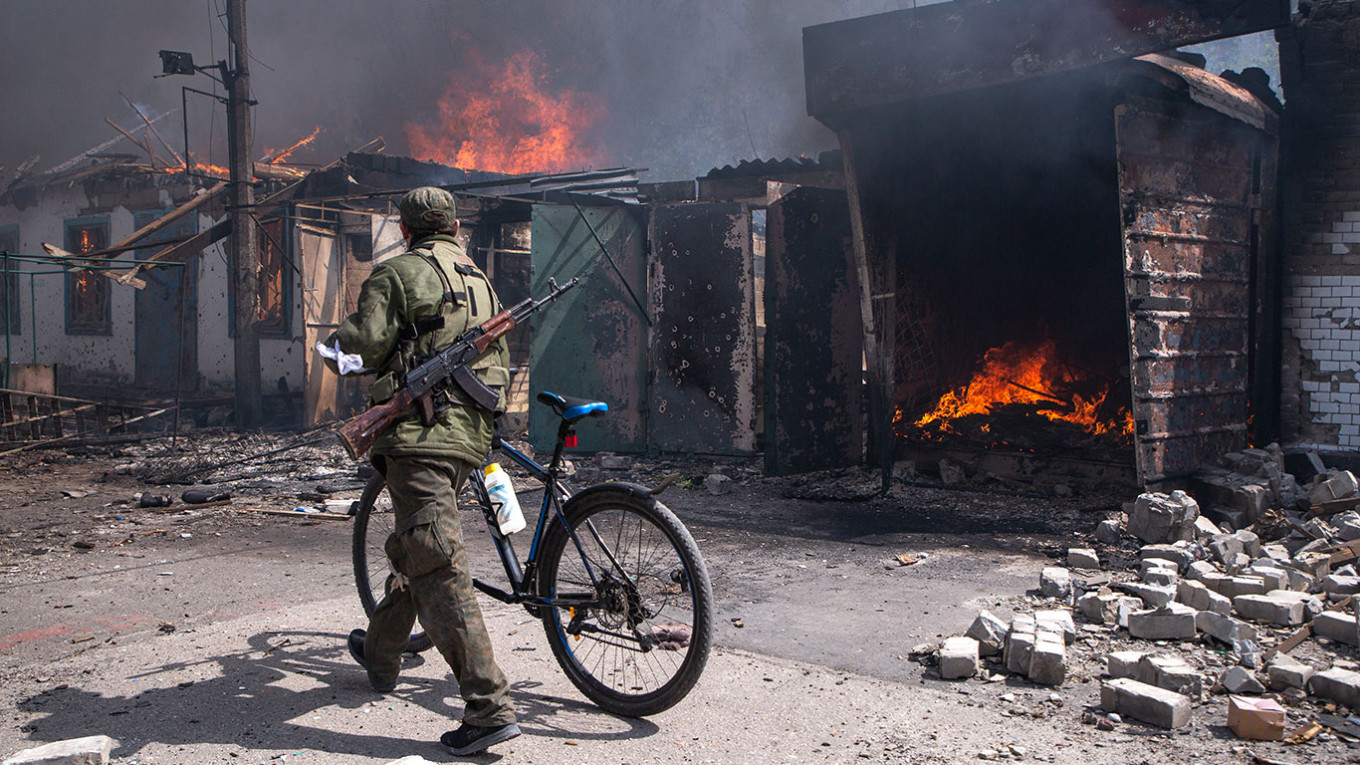When Russia invaded neighboring Ukraine in February, Russian general Yakov Rezantsev apparently told his troops that they would not be at war for long.
“This operation is going to be over in mere hours,” Rezantsev said, according to an intercepted conversation released by the Ukrainian security services. The Moscow Times was unable to verify the recording.
More than two months later, Russian troops have made only limited gains in Ukraine and are bogged down in brutal fighting, inching forward in some places and losing territory in others. With Russia’s losses of men and materiel rising rapidly, predictions of a long and bloody military stalemate are becoming increasingly common.
Rezantsev himself was killed in March in a Ukrainian airstrike near the Russian-occupied city of Kherson in southern Ukraine, according to the BBC.
Despite expectations that the symbolic date of May 9, when Russia marks the Soviet Union’s victory of Nazi Germany, would see President Vladimir Putin announced a change of tack in Ukraine, it passed without a public change in Moscow’s approach.
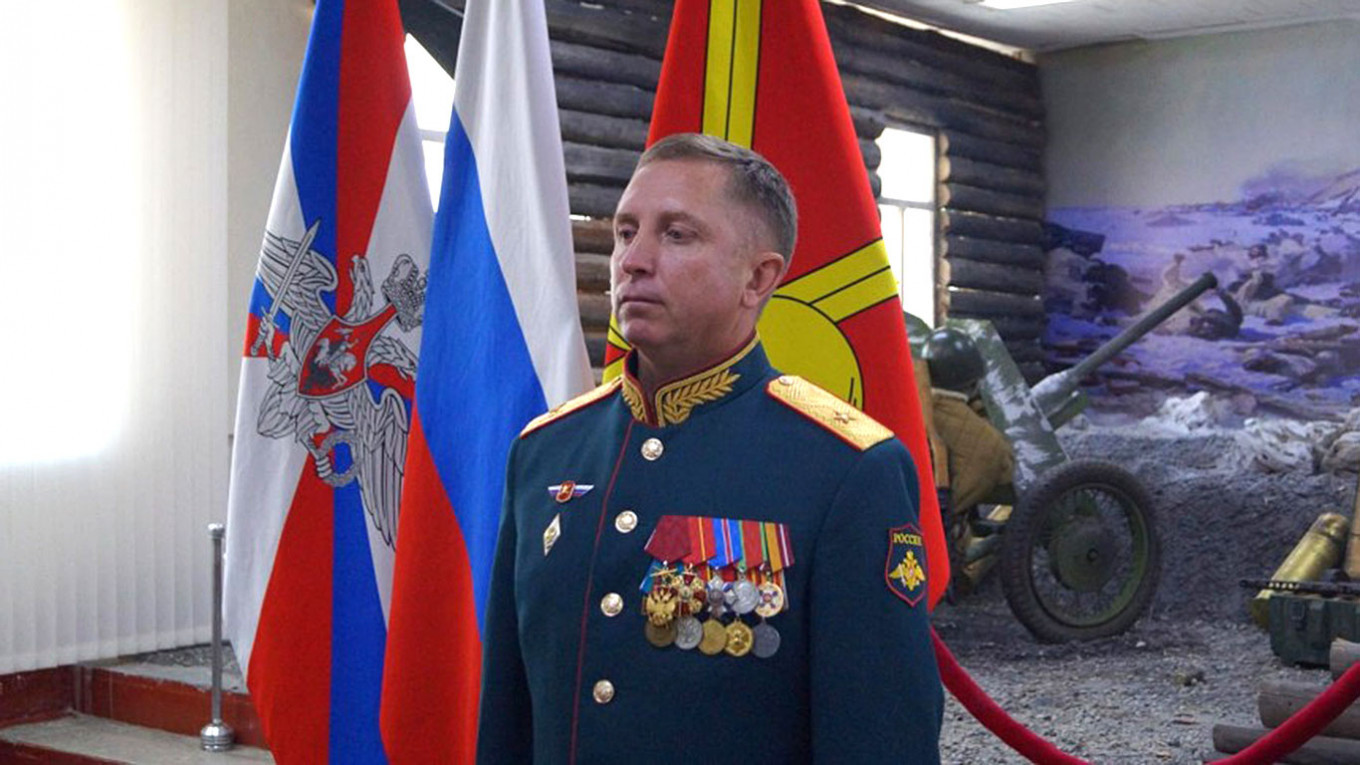
"We assess President Putin is preparing for prolonged conflict in Ukraine," U.S. Director of National Intelligence Avril Haines told a U.S. Senate hearing Tuesday.
The Russian advance has been “slow and difficult,” said Tracey German, a security expert at King's College London, and they have failed to capture strategic towns in eastern Ukraine including Slovyansk and Kramatorsk. Russian forces have lost “a lot of manpower and equipment, and are struggling to replace such losses,” German added.
Even modest gains made recently by Russia have come at the cost of losing control over other areas, in particular near the northeastern Ukrainian city of Kharkiv.
“[They] have to make trade-offs,” said Dmitry Gorenburg, an expert on Russian security at the Virginia-based CNA think tank. “The price for making gains in one place is that the Russians have to move forces out of another area, and then Ukraine can take back territory.”
The situation increasingly resembles a “stalemate” in which, despite fierce fighting, neither side is making significant territorial gains or losses, according to Gorenburg.
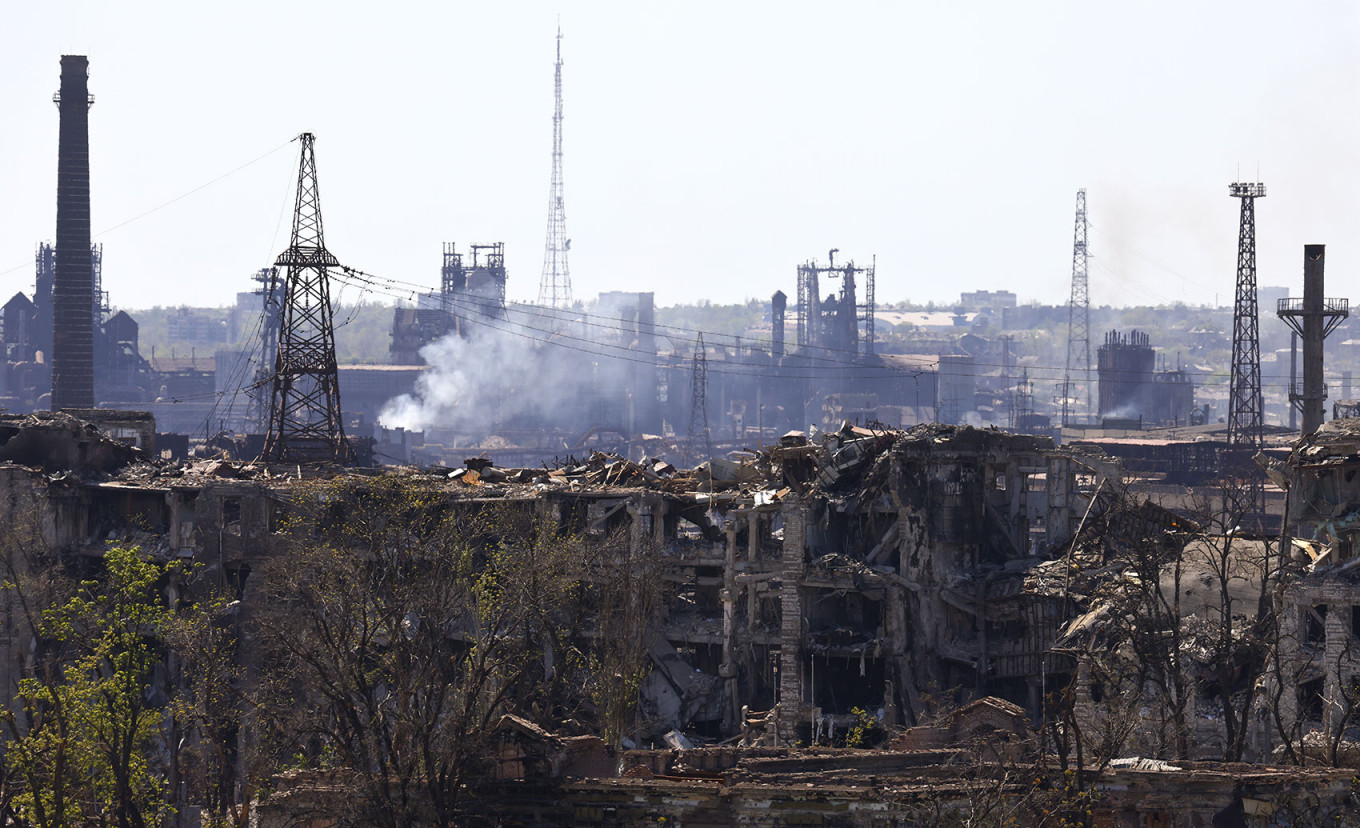
U.S. Chairman of the Joint Chiefs of Staff General Mark Milley predicted last month that a protracted war in eastern Ukraine could go on “for years.”
In a long war, supplies of men and equipment become key.
Insufficient manpower is a growing problem for the Russian army as it seeks to push forward across a front over 500 kilometers long.
Moscow’s apparent plan to carry out a giant pincer movement — with troops pushing south from the northeastern Ukrainian town of Izyum and north from the areas around the port city of Mariupol — now appears increasingly impossible to achieve, analysts said.
“When you look at the size of their frontage, the breadth is proving a problem,” said Nick Reynolds, a land warfare expert at the London-based Royal United Services Institute.
Estimates of the number of Russian casualties differ. British intelligence has put the death toll at 15,000 troops, while the Ukrainian Defense Ministry claims the figure is as high as 26,000. Officially, Russia has admitted to just 1,351 soldiers killed in action.
Despite speculation Putin was preparing to declare a nationwide mobilization to help provide the manpower to allow the army to push westward, no such announcement was made.
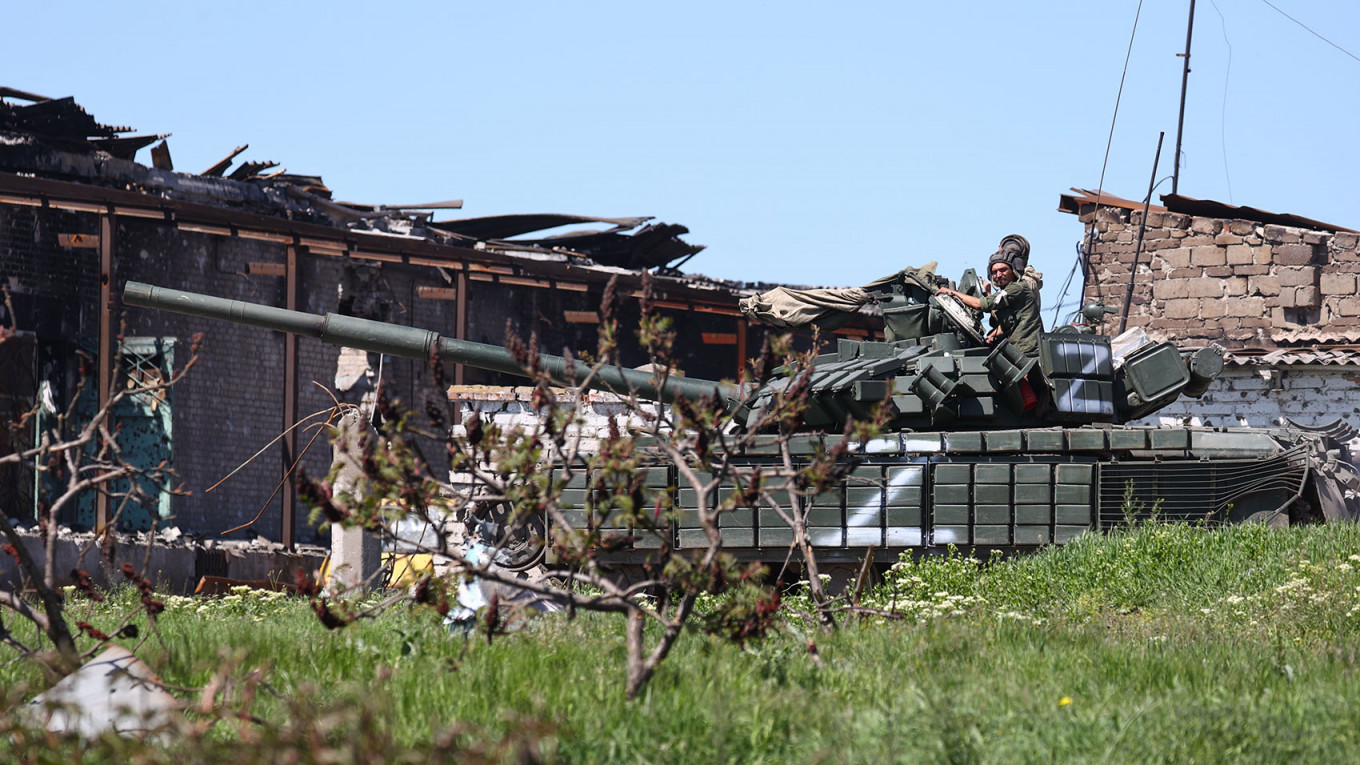
Analysts say the Kremlin likely decided against mobilization because of the potential for even higher casualty rates among recruits struggling to use complex weaponry.
“To mobilize untrained soldiers is to produce corpses,” said Andrei Kolesnikov, an expert on Russian politics at the Carnegie Endowment for International Peace.
As well as manpower attrition, large amounts of Russian military equipment have also been destroyed in the course of 11 weeks of fighting.
Russia has lost 3,590 military vehicles, 124 aircraft and 9 naval vessels since the beginning of the war, according to Oryx, an intelligence blog that documents Russia's military losses.
Stocks of long-range missiles are also reportedly running low. Replacing them, particularly under Western sanctions, is likely to be time-consuming.
“If the Russians are to make any serious advances from now on, they will have to be slow, methodical operations with a significant investment in resources and manpower,” said Reynolds.
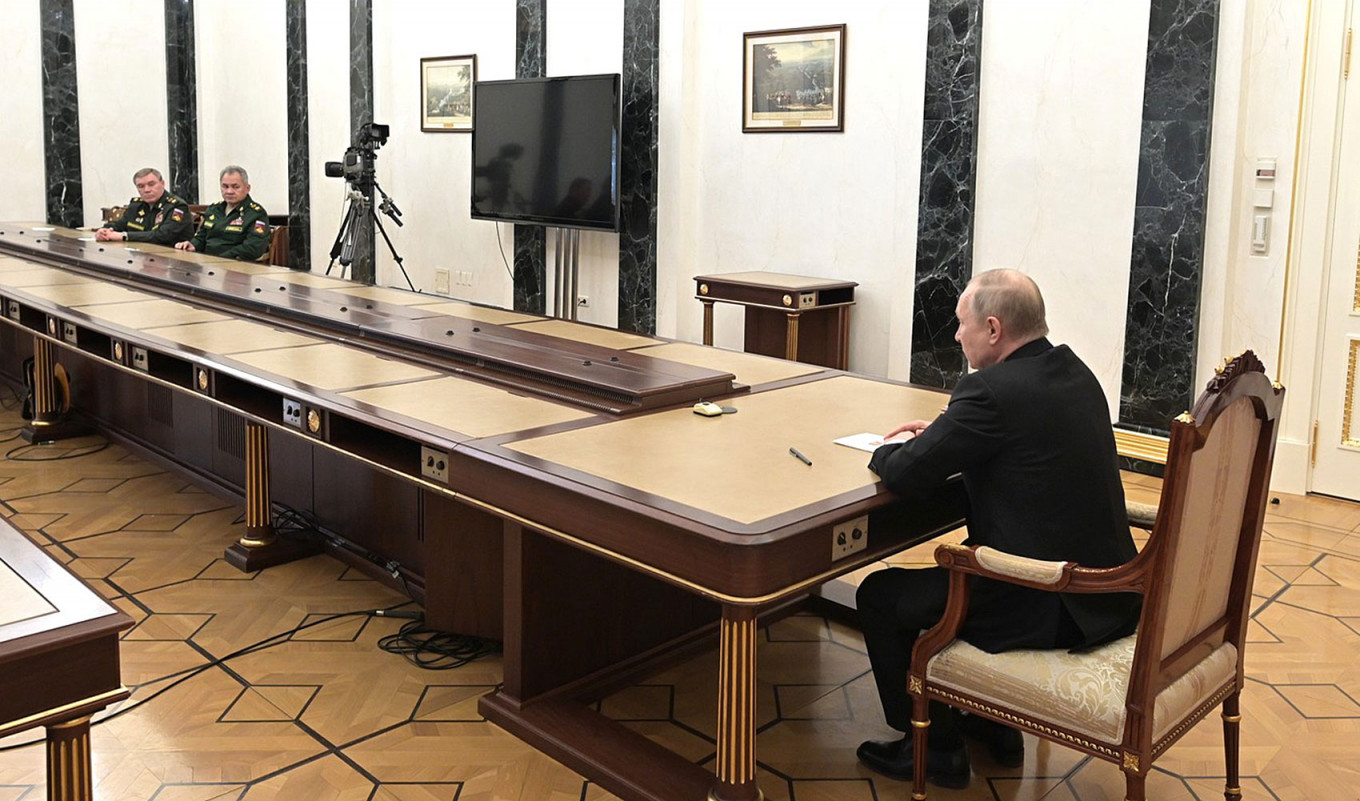
However Russia chooses to continue its offensive, it is also being met by stiffening resistance from a Ukrainian army increasingly well-equipped with Western weaponry.
Politically, Ukraine also appears less willing to seek de-escalation with Moscow.
Ukrainian President Volodomyr Zelensky has said that Russian forces pulling back to their pre-Feb. 24 positions would be a minimum requirement for any peace settlement.
All these factors are reducing Russia’s options on the battlefield, according to Gorenburg, and make the chance of a drawn-out military conflict much higher.
Instead, Russia may resort to trying to strangle Ukraine economically, enforcing a Black Sea blockade and stopping goods moving in and out of Ukraine’s major ports.
“This may not be the war they want to fight, but it might be the only war they can fight,” Gorenburg said.
A Message from The Moscow Times:
Dear readers,
We are facing unprecedented challenges. Russia's Prosecutor General's Office has designated The Moscow Times as an "undesirable" organization, criminalizing our work and putting our staff at risk of prosecution. This follows our earlier unjust labeling as a "foreign agent."
These actions are direct attempts to silence independent journalism in Russia. The authorities claim our work "discredits the decisions of the Russian leadership." We see things differently: we strive to provide accurate, unbiased reporting on Russia.
We, the journalists of The Moscow Times, refuse to be silenced. But to continue our work, we need your help.
Your support, no matter how small, makes a world of difference. If you can, please support us monthly starting from just $2. It's quick to set up, and every contribution makes a significant impact.
By supporting The Moscow Times, you're defending open, independent journalism in the face of repression. Thank you for standing with us.
Remind me later.



